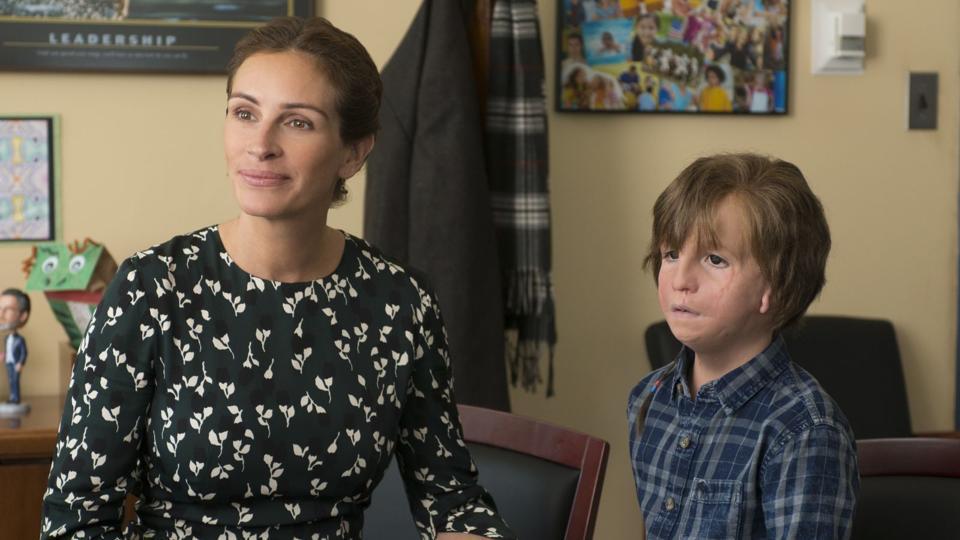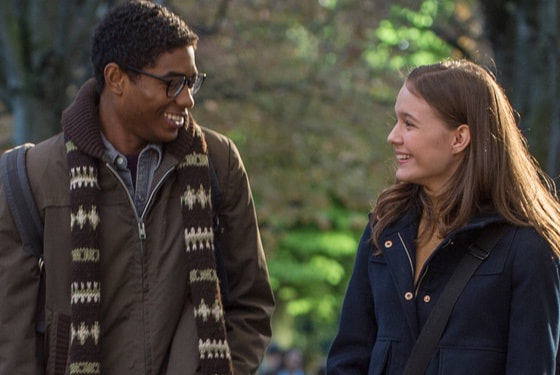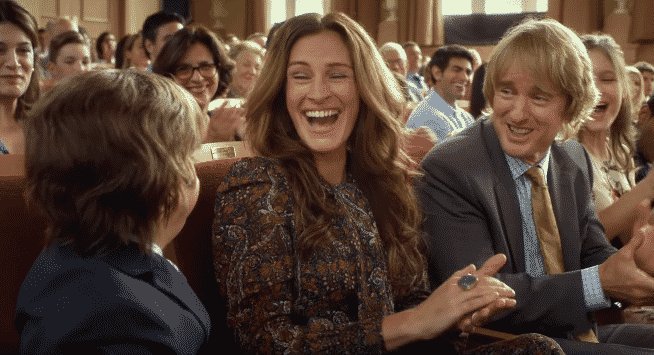In the film, Auggie’s sister Via (Izabela Vidovic) uses an astronomical metaphor for her family structure: Auggie is the sun, and she and her parents are planets. This metaphor could apply to the structure of the book and film as well; Auggie’s perspective is supplemented by sections narrated by other characters in the book. I was pleased that the film took this same approach; I think it’s essential to the story structure. Although they scaled back the overall diversity in the characters, the film still had elements of racial diversity – at least a realistic amount for upper-middle-class\upper-class Brooklyn. There’s even an interracial relationship between two major characters.
Besides their talent, one of the reasons I’m so impressed with the young cast is because of the adult co-stars with whom they have to share the spotlight. Julia Roberts and Owen Wilson play the Pullman parents, and have such excellent chemistry that it surprised me to read that they hadn’t worked together onscreen before Wonder. They have many enjoyable scenes together, but my favorite isolates their relationship, without the distractions of work and family life. Despite all the difficult circumstances they’ve endured together, they’re still able to keep the spark alive….
Thus far, I’ve listed all the things I’ve enjoyed about Wonder. Now it’s (finally) time for the critiques. Other reviewers have commented on the fact that they would have rather seen Auggie played by an actor with actual facial differences, not someone who needed a prosthetic to look that way. I agree with this, and also think they downplayed his look. It’s possible that, over the course of the film, I just got used to Auggie’s face, and it didn’t shock me anymore…but it didn’t shock me that much in the first place. Perhaps the effect is different on younger audiences – and perhaps they had those younger audiences in mind when they sculpted his face, not wanting to frighten them too much – but I think that discomfort, and being able to transcend it, is an important part of the storyline, for actors and audience alike.
Changes to source material almost always occur in the adaptation process, and Wonder is no different. I’m usually fairly picky about this – as much as I know it’s natural – but only one confused and irritated me to the point it’s worth discussing here. Towards the end of the book, the Beecher Prep fifth graders go on a field trip to a nature reserve, where Auggie gets attacked in the woods at night by a group of older students, who make off with one of his hearing aids after scaring him and pushing him around a bit. Film Wonder keeps this moment, but lessens the tension considerably by setting it during the day instead – and his hearing aid isn’t stolen because he doesn’t wear them in the first place. I’m thinking they did this to reduce the fear factor it might evoke in younger audience members, but it feels like a cop-out, evading a genuine empathetic moment. Being scared by a movie isn’t always fun, but sometimes it’s necessary.
If you’re not ready to cry, this is not the movie for you. However, if you would like an emotional and thought-provoking experience, Wonder might be a good choice for movie night.





 RSS Feed
RSS Feed
